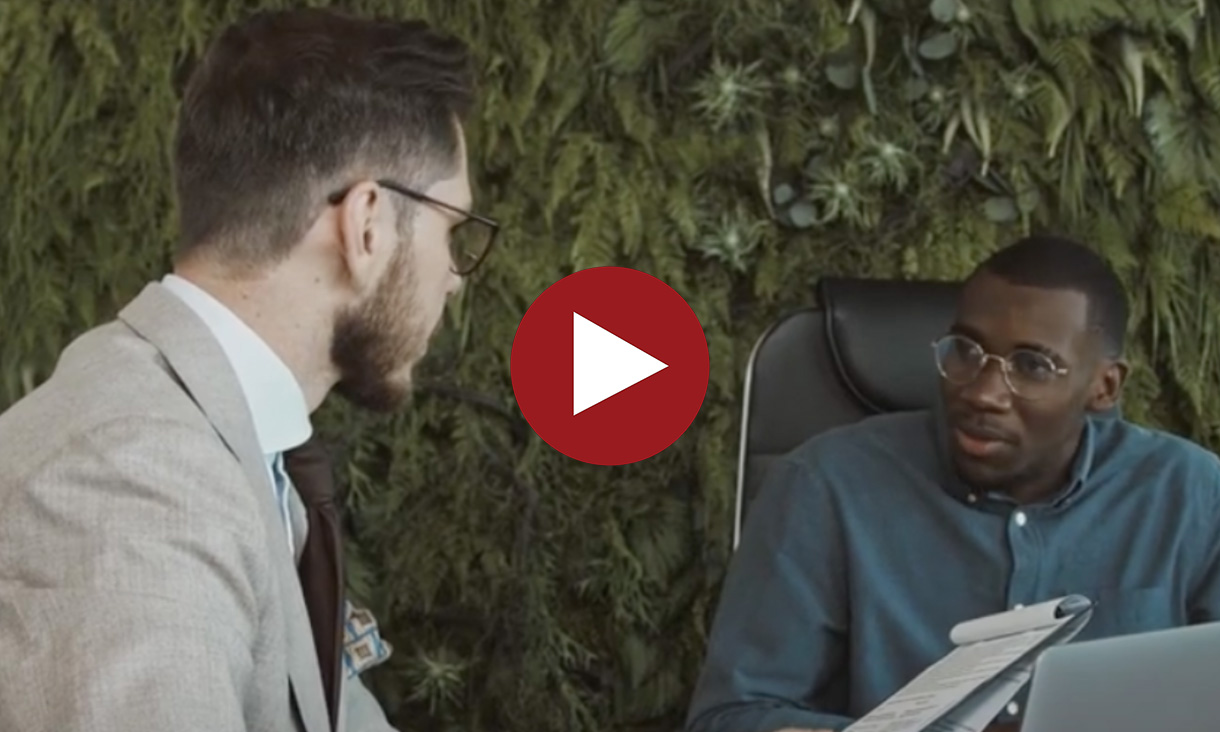Gender equity and organisations
This theme examines gendered power relations and identities as related to organisations and organisational life and how gender equality can be advanced through policy and practice change.
Theme leaders: Dr Pradeepa Dahanayake, Dr Catherine Earl and Dr Leila Afshari
Recent publications in this theme
COSC members Associate Professor Bronwyn Coate and Dr Leila Afshari, alongside Associate Professor Bianna Chesser and Dr Rojan Afrouz share knowledge, best practices, and innovative solutions to help promote, protect and empower women

Professor Afreen Huq explored how women entrepreneurs in patriarchal societies manage work-family boundaries by embedding entrepreneurial work within family life, using strategies to balance work boundaries with maintaining traditional family roles for the Journal of Small Business Management

Professor Joe Jiang and Associate Professor Lena Wang explored what gender and/or sexuality diverse (GSD) university students need as they navigate the transition from academia to the professional world. Published in Applied Psychology, the team identified a range of themes that help create inclusive and supportive environments for all students.

In a study published in the Journal of Sport Management, Professor Emma Sherry found the ‘Change Our Game initiative’, made a significant impact to gender equity on boards. Running for over three years statewide in Victoria, the initiative mandated 40% representation of women on state sport boards and has led to institutional change and achieved a significant increase in women board members.

This report details the findings of a qualitative study investigating the factors that contribute to the low retention and recruitment of women in the cyber security sector in Australia.

This report documents and explores the reasons for the under-representation of women in Australia's cyber security workforce and develops a set of policies and initiatives designed to improve gender diversity and inclusion.

Dr Bronwyn Coate’s study in the Australian Journal of Management finds inequitable power dynamics behind the camera on Australian film sets from gender discrimination to racism, sexism, ageism, ableism and homophobia. The study recommends the need for policymakers, guilds and trade unions to work collaboratively to set and enforce standards of workplace equality and respect.


Dr Leonora Risse examined gender responsive budgeting as part of a research project to examine how government expenditure decisions and tax revenue settings can affect men and women in different ways. Dr Risse’s work has influenced changes in legislation and policy in Victoria including the establishment of a Gender Responsive Budgeting Unit in Victorian Department of Treasury and Finance.

How does the “psychological contract” impact women’s sport? Research by Professor Tracy Taylor in Sport Management Review finds it can lead to power imbalances that force many athletes to accept exploitative conditions just to play in the league, in the hope conditions change in the future.

How can a capabilities perspective advance persistent health inequalities? Research by Associate Professor Lauren Gurrieri in Sociology of Health & Illness discusses the capabilities necessary for low SES mothers’ recruitability to leisure time physical activity. She finds these are contingent on mothering practices, which are shaped by gendered and heteronormative cultural conventions

A systematic review of literature on women’s professional sport leagues in Sport Management Review by Professor Tracy Taylor finds a dominance of research from the USA, Australia, and some European countries, the prevalence of mainstream theories in sports sociology, marketing, and management, and the expectation for women's sports to embody diversity and social change.

Associate Professor Lauren Gurrieri introduces a feminist pedagogical approach to marketing education in the Journal of Marketing Management. Through a problem-based learning assessment task and feminist praxis, Dr Gurrieri’s work guides educators in how students can be engaged to investigate, critique and transform the ethical and social implications of advertising’s treatment of gender.

Professor Tracy Taylor explores the rise of women’s professional sports leagues in Journal of Sport and Management. Dr Taylor’s research discusses whether gendered organisational practices impact athletes’ experiences and how/whether these practices are being challenged by the entry of women into these organisations. Findings show that management need to create cultures of belonging and development pathways for female professional athletes.

In her work for the International Journal of Cultural Policy, Dr Bronwyn Coate finds that in the opera industry, women are strongly underrepresented in conductor, director and designer roles. Dr Coate’s research finds that women are also negatively impacted by Australia’s existing policy landscape.

Co-Director of COSC Associate Professor Lauren Gurrieri has published a ‘state of the art’ paper of the past, present and future of gender and the marketplace scholarship in the Journal of Marketing Management, in which she introduces an innovative ‘feminist dialogical review’ as an alternative to traditional literature review methods.
Impact case studies

Associate Professor Lena Wang, in collaboration with RMIT Centre for Cyber Security Research & Innovation (CCSRI), COSC and a multi-disciplinary team of academics with backgrounds in cybersecurity, organisational psychology, economic, management and human resources examined female representation in Australia’s cyber security workforce. The study found that when stakeholders cooperate (such as employers, professional organisations, industry groups, educators and the media) they can foster a more inclusive culture and shift stereotypical perceptions about the sector.

Associate Professor Lauren Gurrieri, in partnership with the ShEqual action coalition, examined gender equality in advertising to address the portrayal of gender in advertising and how those portrayals contribute towards violence against women. Dr Gurrieri’s analysis provided evidence that the way gender is portrayed in advertisements had a strong, negative impact on women and contributes towards a culture of violence against women.
Health, wellbeing and organisations
This theme explores how organisations can promote and improve health and wellbeing as well as organisational responses to health and social problems.
Theme leaders: Dr Asanka Gunasekara, Dr Anna Zhu and Dr Phuong Hoang.

Impact through Insight: Cameron Duff
Cameron Duff is interested in the health and social problems of cities, which aligns strongly with the health, wellbeing and organisations theme. Through his research he hopes to enable the design of systems which will coordinate services effectively, and ultimately provide better support to those in need.
Recent publications in this theme

Dr Hannah Meacham, Dr Haiying Kang and Professor Timothy Bartram explored how family support buffers the negative impact of role overload on paramedics' resilience, turnover intentions, and promotive voice during the COVID-19 pandemic for Personnel Review.

Published in Organizational Dynamics, Dr Nilupama Wijewardena explored the use of humour by workplace leaders, and how this can be used effectively. Dr Wijewardena and her research team developed a humour toolkit and examined how to effectively transfer humour training into workplace leadership behaviours.

Individuals thrive at work because they sense forward progress and momentum. But how can HR practitioners and senior leaders foster this? Research in Human Resource Management by COSC’s Professor Joe Jiang examines how organisations can embrace individuals' efforts in approach job crafting through tailored development programs to fit an individual's personal growth needs.

Few studies have sought to understand the experience of those impacted by long COVID. Research by Professor Bernardo Figueiredo in Social Science & Medicine examines the role of agency and social support in shaping the journeys of people contending with long COVID.

In research published in the Journal of Organizational Ethnography, Professor Cameron Duff investigates the sensory experiences related to the transition to remote work during the COVID-19 pandemic. Dr Duff finds that as the boundaries between “home” and “work” become increasingly blurred, paying closer attention to the sensory aspects of work by emphasising affective and embodied ways of learning has helped us to navigate the integration of home and work into our public and private, intimate and social lives.

Professor Cameron Duff and Associate Professor Lena Wang investigates burnout amongst Australian cancer nurses during the Covid-19 pandemic in Health Care Management Review. Patient aggression, workload, emotional demands, and abusive peers and managers were reported as distinct job demands, whereas job significance and supportive peers who demonstrated leadership, along with task variety, are identified as job resources.

Research in the European Journal of Information Systems by Dr Argho Bandyopadhyay investigates the growing significance of digital health and fitness communities for promoting individuals’ health and wellbeing. The study finds that emotional engagement and being recognised by digital health and fitness communities influence members’ intention to stick with the community.

Dr Haiying Kang and Professor Joe Jiang explore the negative effect of workplace ostracism on employee thriving in Applied Psychology. They find that employee organisation-based self-esteem strengthened not only the negative relationship between workplace ostracism and thriving, but also the indirect effect of workplace ostracism on creative behaviour.

Professor Bernardo Figueiredo investigates gaps among Australian Long COVID support services in Public Health Reviews. Dr Figueiredo found that the majority of Australian services provided multidisciplinary rehabilitation programs with service models generally consistent with international and national guidelines.

In his work for Human Resource Management Journal, Professor Timothy Bartram and his team conduct three studies to develop the first scale of anti-violence human resource management practices. The measure includes the three dimensions of management of violent incidents, anti-violence training and environmental security.

Perceived career plateau is the point at which people feel that further career advancement is unlikely to occur. In a new study in Human Resources Management, Professor Joe Jiang considers how work-role overload relates positively to work–life conflict when employees have a high level of emotional stability. His findings provide new insights into how human resource management professionals may intervene to prevent employees from perceiving career plateau.

CVs and interviews are major tools for evaluating workers. But for neurodiverse workers, the process of translating indicators of performance into words can be biased. Research by Dr Emmanuelle Walkowiak in Human Resource Management Journal explores how technology may be used to support diversity and inclusion in the workplace. Such technology includes the neutralisation of biases during interviews, the development of digital support for physical and mental wellbeing and the facilitation of different cognition modes.

Dr Sehrish Shahid's paper published in Personnel Review finds that supporting workers’ mental health is required to help company-assigned expatriates sent on international assignments. The paper proposes mental health-supportive International human resource management interventions to address the potential failure of expatriates' psychological adjustment.

What are the factors which influence hesitancy to having the COVID-19 vaccine? Associate Professor Lauren Gurrieri explores mothers’ vaccine hesitancy in Critical Public Health and finds fear of being a ‘bad mother’ and anticipated guilt about failing to be a ‘good mother’, are experienced by mothers striving to meet societal expectations of intensive mothering though their vaccination decision.

Professor Joe Jiang examines the effect of work–life conflict on job performance via employee wellbeing in Personality and Individual Differences. The study shows that extraverted employees experience more health impairment and performance decline than introverted employees when encountered with work–life conflict.

Dr Prue Burns and Associate Professor Marco De Sisto examine the power of Human Resource Management (HRM) to change public attitudes toward the employment of formerly incarcerated people. The research, published in Human Resource Management Journal, tested two interventions to explore whether HRM can reduce public stigma toward the employment of formerly incarcerated people.

In an industry report, Professor Timothy Bartram and his team examine the current state of the Human Resource (HR) profession in Australia, especially in consideration of the significant impact that COVID-19 pandemic has had on the profession. The report finds several important HR capabilities for the next five years, including: leadership and change management, strategic workforce planning, communication skills, and empathy and emotional intelligence.

Dr Saidma Ahmad explores the management of workplace bullying in the International Journal of Conflict Management. The study finds that when leaders focus on the needs of others, this helps in lessening employee exposure to workplace bullying.

Dr Emmanuelle Walkowiak investigates how digital technologies are linked with diversity and inclusion (D&I) in Human Resource Management Journal. Dr Walkowiak finds the role of emotion recognition technologies and virtual reality in supporting mental wellbeing represents a promising research avenue for D&I programmes.

Professor Joe Jiang explores how managers can build and maintain a thriving workforce in Applied Psychology. Dr Jiang’s research finds that managers should understand that in addition to traditional practices such as job designs, training, and rewards, boosting high activated positive affect can be a cost-effective way to build and maintain a thriving workforce.

Professor Tim Bartram and Dr Matthew Walker investigate anti-violence human resource management in the aged-care sector published in Personnel Review. Their findings show that workers who trust their managers are less cynical about anti-violence human resource management practices.

Dr Argho Bandyopadhyay explores users’ intention to continue using digital health and fitness communities in the European Journal of Information Systems. The study finds that different socio-emotional factors influence participant’s continued engagement as well as how members perceive the presence of the community.

Research by Dr Leila Afshari and other RMIT researchers respond to the global and crisis point shortage of nurses in a study published in the Personnel Review journal. The paper highlights the need for genuine emotional, professional, and personal support from leaders and organisations, as well as workplaces, that help nurses adapt and stay resilient in the face of constant change.

Professor Joe Jiang writes about the pivotal role of Human Resource Management practices in contributing to employee’s ability to thrive at work, in a special issue of Human Resource Management journal.
Impact case studies

Professor Cameron Duff, in partnership with The Australian Housing and Urban Research Institute (AHURI) explored the most effective ways of tailoring and delivering housing supports for individuals leaving rehabilitation and other institutional settings. This research finds housing transition supports ought to be integrated more effectively into discharge planning in psychiatric inpatient care for individuals at risk of (or already experiencing) housing insecurity.

Dr Louise Byrne and Associate Professor Lena Wang explored the full lifecycle of the lived experience workforce – from recruitment, implementation and retention, to overall global needs and the broader implications for colleagues and leadership within and beyond the mental health sector. The outcome of this work has been the development of the Queensland Framework for the Development of the Mental Health Lived Experience Workforce.

Dr Louise Byrne has produced the National Lived Experience Workforce Development Guidelines which provide practical guidance and strategies to ensure collective lived experiences workforces are developed within settings that understand, value and support the work to be sustainable and effectively reform mental health care.
Positive ageing and organisations
This theme considers how older people can be supported within and through organisations to be connected and contribute to society and the economy.
Theme leader: Professor Bernardo Figueiredo and Dr Sarah Sinclair.

Shaping Connections
Professor Bernardo Figueiredo is the Co-founder and Director of Shaping Connections. This program provides insights, research outcomes, collaborative opportunities, workshops and resources to industry to assist with bridging the technology gap and social isolation in older Adults. It is a significant contributor to Dr Figueiredo’s work and leadership in the positive ageing and organisations theme.
Recent publications in this theme

Dr Torgeir Aleti, Professor Bernardo Figueiredo and Professor Mike Reid explored how socialisation agents shape digital competence in older adults, identifying three processes—reciprocity, self-socialisation, and outsourcing for the Australasian Marketing Journal.

Professor Bernardo Figueiredo, Professor Mike Reid and Dr Torgeir Aleti investigated digital access for social inclusion and the inequalities faced by older adults (65+) in Convergence.

Research by Professor Bernardo Figueiredo, Dr Torgeir Aleti and Professor Mike Reid in the Journal of Services Marketing establishes guidelines for co-design that can be used for customers experiencing vulnerability.

In a chapter for Measuring, Understanding and Improving Wellbeing Among Older People, Dr Sarah Sinclair explore how good housing design and location are central to supporting ageing well. Dr Sinclair found “liveable homes” with design features that increase mobility, accessibility and independence reduce the need for dependence on public services.

Research in the Australasian Marketing Journal by Dr Torgeir Aleti, Professor Bernardo Figueiredo and Professor Mike Reid finds that when older consumer ask for help with using technology from children and grandchildren, this can lead to conflict and frustration. Research findings show that older adults are adopting strategies such as reciprocity, self-socialisation and outsourcing that enable them to become digitally competent consumers.

Professor Mike Reid explored the influence of biosocial, psychological and cognitive factors on proactive health and well-being behaviours of midlife women in Health Promotion Journal of Australia. The findings show that midlife women who held positive perceptions of the ageing experience were more likely to be highly proactive and maintain positive mental health and physical functioning in comparison to those who held negative associations with ageing.

Dr Torgeir Aleti, Professor Bernardo Figueiredo and Professor Mike Reid investigated who older Australia adults would most likely turn to for advice about information and communication technology (ICT) if they needed help using or fixing an ICT device. The findings, published in Environmental Research and Public Health reveal that older consumers tend to rely on younger family members and younger friends are seen as the most valuable second-option agents.

In a study published in Environmental Research and Public Health, Professor Bernardo Figueiredo, Professor Mike Reid and Dr Torgeir Aleti explored the perceptions of information and communication technology risks by older adults. This study indicated the promising application of the scenario personarrative method in participatory activities with older adults, indicating the benefits of persona enrichment and scenario mapping for understanding the information and communication technology (ICT) practices and perspectives of those in later life.

Professor Bernardo Figueiredo, Professor Mike Reid, Dr. Jacob Sheahan and fellow RMIT academic Dist. Professor Larissa Hjorth shared their research in Information Technology and People on the digital competencies of older adults, their perceptions and understanding of digital risk in everyday digital activities and how these impact on frequency of use in digital engagement. Their research furthers understanding in digital and social inclusion among older adults.
Impact case studies

RMIT and the University of Third Age (U3A) Network Victoria have collaborated on the Shaping Connections program. Led by Dr Bernardo Figueiredo, the program aims to improve social and digital connectedness in older adults. Findings include the discovery of the value of peer-to-peer learning and the power of working with individual “social connectors” within communities. This insight has helped U3A to steer activities away from large computer classes and towards peer-to-peer mentoring.
Multicultural inclusion and organisations
This theme explores issues of inclusion and exclusion for culturally and linguistically diverse people, migrants, refugees and indigenous communities in workplaces and for organisations.
Theme leaders: Dr Marian Makkar, Associate Professor My Nguyen and Dr Thao Luong.
Recent publications in this theme
COSC members Professor David Fan, Dr My Nguyen, Dr Marian Makkar and Dr June Tran discuss the ways organisations are constantly navigating a landscape of both challenges and opportunities in an era marked by rapid technological advancements, evolving market dynamics, and unprecedented global interconnectedness.

Dr Haiying Kang and Associate Professor Lena Wang investigated how task interdependence and expatriate advice-seeking jointly influence host country nationals' (HCNs') advice-giving behaviour for International Business Review.

Professor Angel Zhong examined the impact of private securities litigation by minority shareholders on corporate fraud in China. Published in Finance Research Letters the research showed minority shareholders' private enforcement efforts contribute to curbing corporate fraud.

In a study published in the Journal of International Management, COSC members Dr Haiying Kang and Associate Professor Lena Wang explore how employees working as host country nationals (HCNs) navigate negative working conditions. The researchers found that HCNs who are more agreeable tend to be less affected by challenging work contexts.

Professor David Fan considers how family firms exit foreign markets in research published in the Journal of World Business. His research finds that family management has varying impacts on family firms’ international decision-making depending on the type of friction.

Professor Bernardo Figueiredo and Associate Professor Janneke Blijlevens explore diasporic identity in brand visual aesthetics in research published in the European Journal of Marketing. They find that in the context of Middle Eastern design, applications of harmonising, homaging and heritaging can enable diasporic identity in particular social situations.

Dr Sehrish Shahid examines how the hospitality sector in Australia sets a relatively low bar for meaningful and rewarding employment for Indigenous workers. Published in The Routledge Handbook of Diversity, Equity, and Inclusion Management in the Hospitality Industry, Dr Shahid finds hospitality to be a precarious working environment, where Indigenous employees report high levels of disrespect and abuse, low job security, and limited access to decent working conditions.

A study by Professor David Fan in the Journal of Management Studies helps to explain Indian firms' rapid international growth through a range of measures including amalgamation, ambidexterity and adaptabilities. The study finds that Indian multinational enterprises flexibly adapt to external contexts by integrating home institutional leverage and host-country linkage, which benefits their sustained capability building.

Professor Bernardo Figueiredo examines how tactics in the #MyBlackReceipt movement support the flourishing of a digital enclave in Journal of Public Policy & Marketing. Dr Figueiredo identifies five tactics that racialised market actors employ to foster digital enclaves and enhance market participation: legitimizing, delimiting, vitalizing, manifesting, and bridging.

Dr Pauline Stanton’s work in the Australasian Journal of Management argues that despite the aspirational strategies and good intentions of Australian universities, the embedded nature of colonisation and institutional whiteness must be identified and challenged for First Peoples to take their rightful place in the universities.

An expatriate's psychological adjustment significantly affects his or her performance and commitment to remain until their international assignment is completed. Dr Sehrish Shahid’s paper published in Personnel Review finds that mental health is an antecedent paramount to psychological adjustment and proposes mental health-supportive international human resource management interventions.

Dr Argho Bandyopadhyay’s work in the Asia Pacific Journal of Marketing and Logistics explores brand equity and consumers’ willingness pay more for wines from renowned regions. The study found the significance of both the rational and emotional paths of consumers in making wine consumption choices.

COSC member Professor David Fan discussed in the International Business Review how international relations affect divestment and investment decisions on multinational enterprises, including findings that the 'propensity to divest increases when host-country national sentiment becomes stronger but decreases when home-host countries have strengthened diplomatic engagement
Impact case studies

Dr Margaret Heffernan has worked extensively with Aboriginal Health Workers and Indigenous women in Victoria and remote parts of central Australia. Dr Heffernan’s research found that early human papillomavirus (HPV) education resources developed for the Northern Territory were not culturally or linguistically appropriate for the Central Australian population. The study and subsequent initiatives empowered health professionals, particularly Aboriginal Health Workers with proven processes and specific evidence-based cultural resources about HPV prevention and immunisation and resulted in some of the highest levels of HPV vaccine uptake globally among adolescent females and males.















